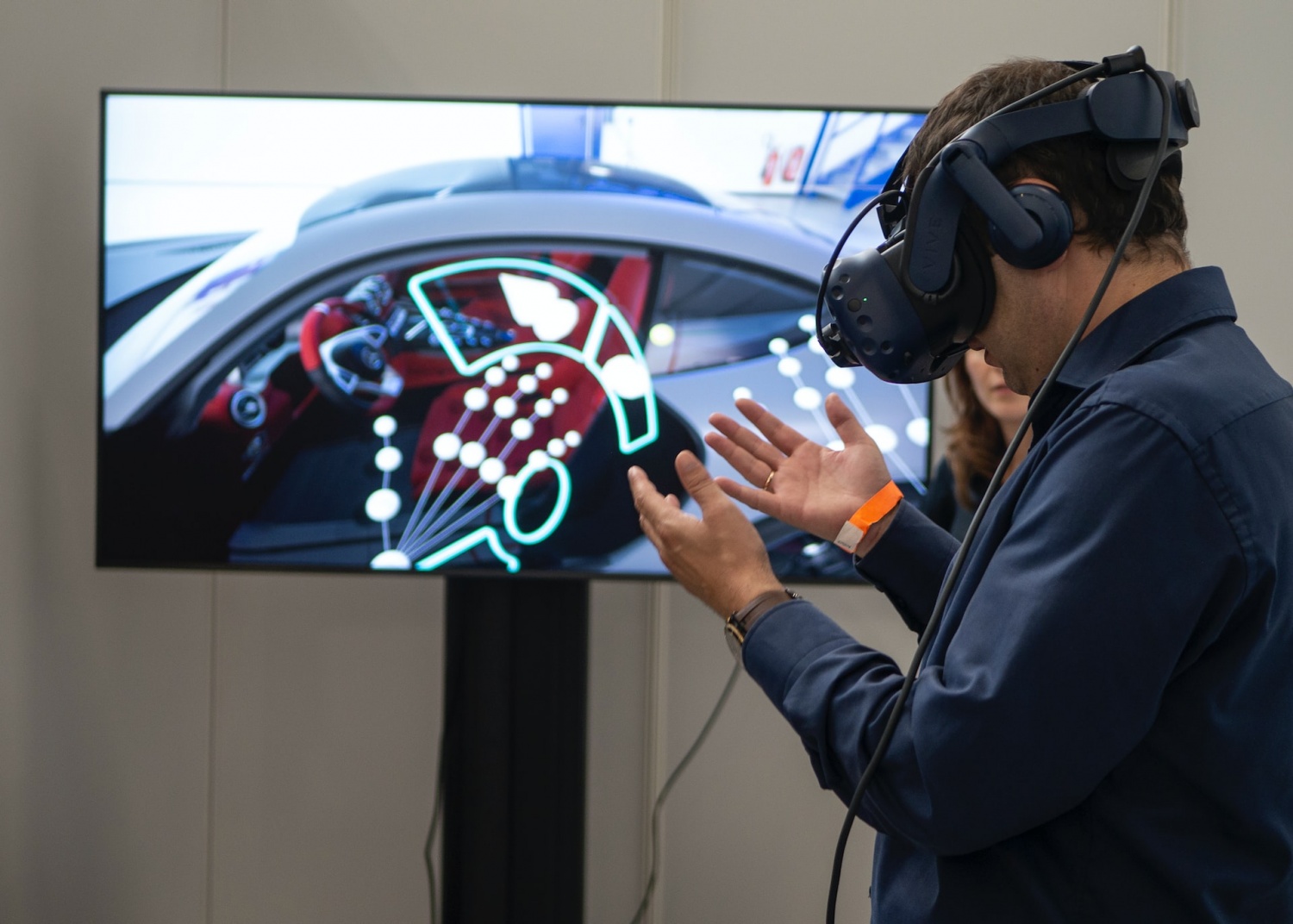
New technologies like VR, AR and tokenization are reshaping the gaming landscape as well as driving metaverse development. Who's going to win the race to build the new world?
Gaming has always been a route to new experiences. Back in the 1980s, video games led the adoption of home computing; forty years on, gaming is leading a wave of experimentation with virtual and augmented reality. We are at an interesting inflection point, where a convergence of social and technological developments have set the stage for sweeping change. What will the sector look like in 10 years? And what businesses are set to come out on top?
Gaming is the gateway drug
Remember those first home computers? There really wasn't much the average person could do with one. Essentially, they were glorified video game consoles, although users with the will could seize the opportunity to learn some coding skills. So games were the gateway drug: they got computers into people's homes, and they got some people started in programming. And then they got people to invest in more and more upgrades, as games were launched that required better graphics cards, faster processors and specific peripherals.
We're seeing the same progression today: games provide the impetus to try out new technologies, as well as motivation to invest in better hardware. After Google Glass landed with a squelch and a fizzle, Pokémon Go got the world excited about augmented reality. And VR? It took the Oculus headset (created specifically for gaming) to show that this long heralded, but never previously successful, technology actually had major potential.
We all know what came next: first Facebook bought up Oculus. Then it was rebranded as Meta. And suddenly all eyes are on "the metaverse" - even though that doesn't actually exist yet. As this emergent space is built, today's games may provide the blueprint for tomorrow's online experience.
Let's define the metaverse as a 3D online space, or more accurately a web of interconnected spaces (just as the internet isn't simply a set of web pages, but the links between them), that allows people to explore and interact. VR isn't essential to this experience, it's just one way of accessing it. The interconnections between spaces are far more important, but that is exactly what is lacking in present metaverse iterations.
Many observers are convinced that the metaverse needs to be built on blockchain. Decentralization just makes more sense for building a truly open, interconnected virtual world. But developers will need to pay attention to the consistent experience that gamers have come to expect: a title should look and feel the same whether they're playing on a console, a phone or desktop computer. For users to get on board with metaverse activities, developers will need to put the same work into standardization - everything from providing interoperable blockchain platforms, to consistent representations of assets whether playing on a screen or in VR.
Size is a handicap in the new arena
Today's corporate giants are not best placed to deliver this metaverse. Over and over, the dominant tech companies have failed to maintain their advantage in times of a paradigm shift. They can't move fast enough to compete with small, agile start-ups, and arguably, they don't have the vision.
This has certainly been shown in the gaming sector. The last major change in direction was the shift to mobile gaming and the free-to-play model. While major studios resisted the idea of free games, a new wave filled the gap. With addictive titles like Candy Crush and Farmville, revenues came from in-app purchases and advertising. By the time the incumbents had been convinced that this model would work, King and Zynga were already ruling the roost. The gaming landscape had been reshaped: more accessible, and more diverse, with a rich roster of indie titles and casual games in the mix.
With blockchain gaming, we are collectively having a far more profound rethink of how value is generated in games, and how it should be distributed. The idea that players should have a chance to share in the value they create, and to co-own the games they play, is a radical departure indeed. And today's leading studios, should they even have appetite for this new world, face a daunting challenge. Traditional game companies that have tried to introduce NFTs have faced a powerful backlash, far more passionate than the usual resistance to change.
So the revolution is going to come from within Web3 - from those already convinced of the radical potential of blockchain; those who understand that NFTs aren't just speculative assets, and that ownership isn't just about tokens. Despite the strong feeling of NFTs' most vocal opponents, these blockchain gaming pioneers will find a receptive audience.
In a recent survey of US gamers, 16% of respondents said they had already bought an NFT. Does that sound low? Considering that NFT games are still a teeny tiny niche (the total number of wallets holding NFTs in the entire world is only around 360,000, and no major game currently includes them), it's pretty impressive. As with other technological developments, gamers are already leading the adoption curve.
The crucial point, though, is the survey's related finding that gamers are far, far more interested in playing than earning. Monetizing your gameplay might be nice, but it's a secondary consideration. The NFT resistance is right about that: very few people want to turn their hobby into an income stream. The lesson: the studios that come out on top in the new gaming landscape will be those that embrace NFTs as a way to underpin player immersion in games that are genuinely fun. When making money is the main incentive, that isn't sustainable.
Game on!
So the research shows that, despite the headlines, gamers are ready and eager to dip their toes into blockchain. And the decentralized gaming industry is evolving rapidly to deliver the kind of excitement that those gamers demand. With supply and demand both in place, rapid growth is assured. Will the vast resources of today's major players be enough to give them the lion's share of the emergent metaverse? Or will agility and commitment win out?
Changing tech (be it blockchain, or VR, or anything else) is only part of the story; what really matters is the changing paradigm driven by that tech. Big change means a big new battle for dominance, and we can be sure that the new leaders will be those who already get it: game developers who are genuinely excited about giving players a seat at the table and have decentralized, gamer-first experiences in their DNA. The studios that see NFTs as just another cash-grab opportunity have already lost.
Author:
Cédric Decoster, Founder & CEO Ajuna Network
Cédric is the founder and Chief Executive Officer of the Ajuna Network, a specialized platform for gamers and studios to co-create, develop, release, and play Web3 games. Ajuna has received funding from multiple Web3 Foundation Grants and recently secured a Kusama parachain.
A 20-year Software Engineer and Solution Architect veteran in the financial sector of Switzerland, Cédric is an avid gamer and passionate modder who developed Sabberstone, one of the best known Hearthstone simulators and has a blockchain track record back to 2013. He holds a Bachelor of Science in Computer Science from SUPSI.





